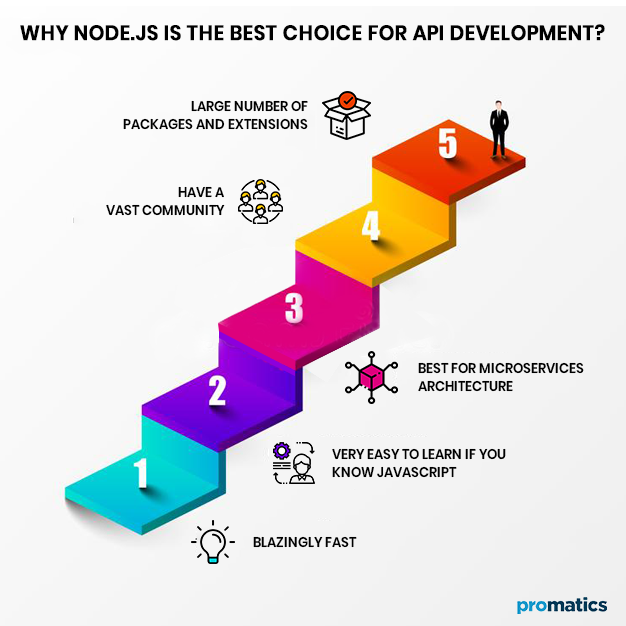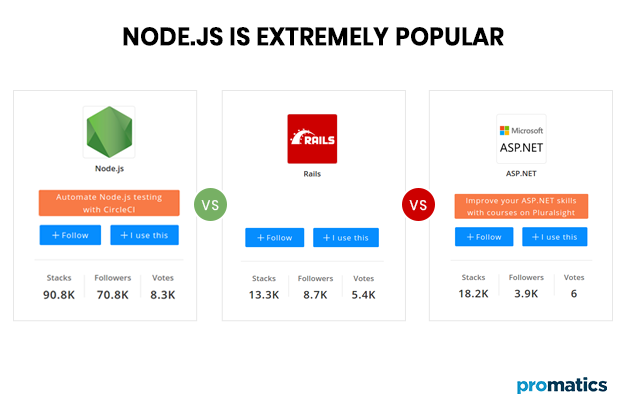Why Application Programming Interface or APIs are pivotal for any mobile app?
API has been a popular buzzword in the web and app development industry for a long time. It is an abbreviation for ‘Application Programming Interface’. APIs play a very major role in the development of any mobile or web application but before we move on towards that, let’s dig a little deeper into what it actually is.
What is an API?
An API acts as a liaison between two separate pieces of code that need to interact with each other for features of the application to work correctly.
Consider your process of performing different functions on a mobile application. You run the program and there is a user interface presented to you to choose from multiple available features. You choose the feature and the particular set of commands behind that feature are run to assist you.
API is the software counterpart of the user interface; just that instead of you who wishes to interact with the application, it is a software who wants to use features of another software. This establishes a client-server relationship between the two software but the client can not directly get in touch with the server. There is an API between the two that helps in the smooth execution of commands at both client and server ends. For more information on the same checkout API guide for dummies.
The Famous Car API
A very commonly quoted example is that of a car where you have the steering wheel, pedals, levers and knobs for different functions. You need to understand the functions of these levers and pedals in the cabin only and you can drive even if you do not know the exact functioning of the engine.
Let’s translate this analogy on the API using the example of a mobile game. The mobile game is the driver in the car and API is the steering and pedals. The game wants to get the players information from Facebook (our car) when they want to connect their account. The game will send its request to the API (move the pedals and the steering), the API will send the commands to Facebook (triggering of the engine) and Facebook will provide the requested data in response (the engine reacts).
How mobile apps are completely dependent on APIs?
Smartphone experience is becoming more and more compact with every passing day. Applications on your phone are interacting with each other and many other databases to bring you the simple and seamless user experience that you are fond of.
Had it been possible without APIs?
A. The User’s Perspective
Today all smartphone users are using multiple applications in their everyday life.
Someone likes a landscape, takes a picture of it and sends to it his family and friends. He opens the camera clicks the pic and shares it by using the ‘sharing option’ on the picture and it’s done.
There are multiple apps coordinating here. The user started in the Camera app. He took the picture. An API stored that picture in the memory. To view the picture, he used the option in the Camera app where another API took him to the Gallery. Then using the share option, he sent it to his friends. Here another API coordinated with the messenger application like WhatsApp or Facebook, retrieved data of his contacts from their database, showed the option for possible recipients and finally, took the data from the smartphone memory and forwarded it to WhatsApp or Facebook to share with the selected recipients.
The API resulted in the following advantages:
i.) Using features from multiple applications became simple and hassle free. It is easier now that you can use data across multiple apps without opening and closing apps every now and then.
Consider Facebook Business Suite for example. Facebook Business Suite helps to manage your page on Facebook and Instagram account from the same mobile app. All of your messages from both platforms will appear in the app and the same goes for all of your ads and analytics.
ii.) APIs have resulted in automation and integration of functions across applications which provides users the experience of ‘everything under one roof’. E-commerce platform apps allow users to view data from multiple platforms in one place. Facebook page insights, Instagram insights, CTR from your website and everything else is integrated in one place.
iii.) This communication among applications via APIs have opened ways to new possibilities. Say, you use an app to scan a document into a pdf file. The app is integrated with a document cloud where it is stored. The document cloud can be accessed using your Google account wherever you need to. Had there been no APIs, you could no longer access any previously created documents once you uninstall the app or change your smartphone.
B. The Developer’s Perspective
APIs have made significant contributions to ease up the lives of developers while increasing the possibilities they can achieve with relatively lesser lines of code.
i.) APIs have opened the gates to uncountable possibilities. Developers can choose to integrate the user account with their Google or Facebook. This can help to provide more information about their users and they can use that information to improve their service.
ii.) You, as a developer, do not need to write separate code for each feature that you want to include in your app. Say, you are making a fitness app and include a feature to prepare a daily schedule. You want that the user’s schedule should be the one in his Google Calendar but he should be able to make changes to it from the fitness app.
Instead that you write detailed code about how the app is going to make it happen, you link it to the Google Calendar’s API. Instead of writing all instructions, the developer will only include how to give an input to the API and what to do with the output data received.
iii.) Widgets have been very popular in recent time because Apple decided that they should be in their phones as well. Guess what? These widgets also use the WidgetKit API that Apple provided so that the developers can be easily integrated with Apple’s SwiftUI.
In essence, APIs allow developers to somewhat outsource the features in their apps. This has resulted in reduction of the labor that companies had to put in their apps. However, APIs may be paid according to the Software as a Service (SaaS) model which may result in one-time or subscription payments.
What to know about the most popular APIs on the market? Click here to know more and do not forget to ask your developer to include them.
What is the best environment to build app APIs – Node.JS?
Node.js is a very popular environment based on Google Chrome’s V8 JavaScript engine. It comes with the added ease of JavaScript which is the most frequently used programming language in mobile app development.
Node.js has a very widespread community because it was introduced as an open-source project in 2009. Overtime, its popularity increased with about 369 million downloads in 2018.
Apart from the impressive metrics, Node.js not only comes with the added advantages of JavaScript, it also has bunch of valuable features of its own as well. Node.js comes with a very rich repository of packages at NPM where developers make their contributions continuously.
This easy-to-learn environment uses a single-event thread to process all requests and commands. This helps to ensure that the processing power is reasonably managed with less CPU usage. This can be particularly helpful for smartphones in the middle and budget range that can not handle applications the same as a Samsung Note 20 or an iPhone 12 can.
Node.js also allows easy integration and coherence across industries so the developers can focus on the core task and less on the compatibility issues.
Furthermore, the ODM/ORM places a reliable security check so that the data security is not compromised at any cost. You can also include other checks as access and authentication controls to further enhance it. More on the utilities of Node.js here.
There are many alternatives to Node.js including Ruby on Rails, Django and Symfony but Node.js enjoys the greatest popularity of the bunch as per statistics of Stackshare.
With over 90 thousand stacks, Node.js becomes the first choice for companies and developers alike.
Node.js may face certain issues as processing lags in case of heavy computational tasks but recent feature of worker threads module is becoming more and more refined to tackle this issue. Apart from that, the scalability and performance are unparalleled and is the go-to choice.
All of these features perfectly fit within the API framework requirements easily and further enhance the utility of using APIs.
In the nutshell…
In the nutshell, APIs are very important tools that not only help the developers to deliver greater utilitarian products in lesser timeframe, they also help explore new avenues to improve the user experience.
Still have your concerns?
Your concerns are legit, and we know how to deal with them. Hook us up for a discussion, no strings attached, and we will show how we can add value to your operations!


